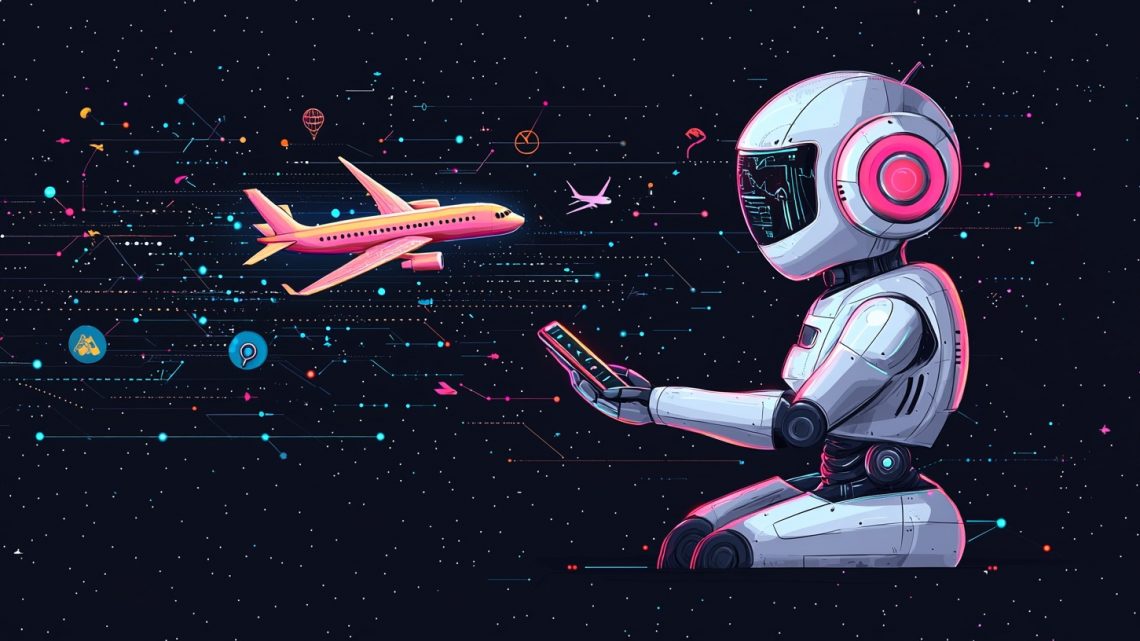Travel planning has always been a hassle. Travelers sift through countless options, read reviews, juggle platforms, and coordinate schedules — all while hunting for deals. However, AI-powered travel agents are about to change everything.
Unlike traditional AI, these agents will autonomously browse websites, make decisions, solve problems, and adjust itineraries on your behalf — much like an automated personal assistant.
For instance, an AI agent could read an article like https://www.theportugalnews.com/news/2025-08-29/10-things-to-do-in-qatar-for-first-time-visitors/820228 and summarize the key points if you don’t have time to read the whole thing.
This isn’t a futuristic dream; travelers should experience this within the next decade. The travel industry is transforming, and early investors will reap the biggest rewards.
These technological advances have sparked a wave of investment and innovation, creating both opportunities and risks for investors. Established travel companies, agile startups, and tech giants are all racing to build AI agents that could disrupt classic travel search engines and capture significant market share.
Tailored trips: let AI handle the details
AI agents are transforming travel with personalized experiences. Instead of manual searches, AI predicts preferences, suggests destinations, and handles bookings effortlessly. Imagine asking your AI to plan a European trip in July — it will:
- Find flights that match your schedule, budget, and airline preferences.
- Book hotels that suit your style.
- Recommend activities based on your interests.
- Adjust plans in real-time if changes or better options arise.
- This saves time, reduces decision fatigue, and uncovers hidden destinations.
AI: smarter, cheaper, everywhere
For companies aiming to leverage AI, securing access to leading algorithms from OpenAI, Google, or Meta is key. As computing costs drop, AI tools are becoming more affordable. Companies like DeepSeek in China showcase this shift, offering efficient AI model training. Lower costs make AI integration more accessible, driving innovation across industries.

Data is the new travel currency
As AI becomes widely available, the companies with the richest datasets will dominate. Data provides insights into traveler preferences, spending habits, and market trends, giving a competitive edge. Established players like Booking Holdings, with vast user bases and loyalty programs, already harness this data to enhance their AI-powered services.
Their early-stage AI agent improves customer experience while streamlining bookings, strengthening their market position and reducing reliance on costly search-engine traffic.
Meanwhile, smaller competitors and traditional players like storefront travel agents and group tour companies risk losing market share as AI streamlines travel planning, connecting travelers directly with personalized recommendations and bookings.
Hospitality Experts: big winners in an AI-driven world
Beyond data and AI infrastructure, industry expertise is crucial. Companies with deep relationships with accommodation providers, like Hilton and Marriott, maintain control over service standards, pricing, and property presentation.
These hotel giants provide long-term operational support to their partners, from labor management to supply procurement, ensuring a robust network of properties. This expertise, built over decades, is difficult for tech companies to replicate.
AI Agents are here, and travel will never be the same
The travel industry is being reshaped by AI, sparking a race for data and insights to personalize experiences further. Tech giants like Google, Apple, and Meta hold vast consumer data but lack the deep operational knowledge and industry relationships held by travel leaders like Booking Holdings and Marriott. Strategic partnerships between tech companies and travel leaders may define the future.
For investors, this presents both opportunities and risks. Those backing the right companies will lead the next era of travel, where seamless, hyper-personalized experiences redefine the industry. Winners won’t just adapt — they’ll shape the future of travel.





